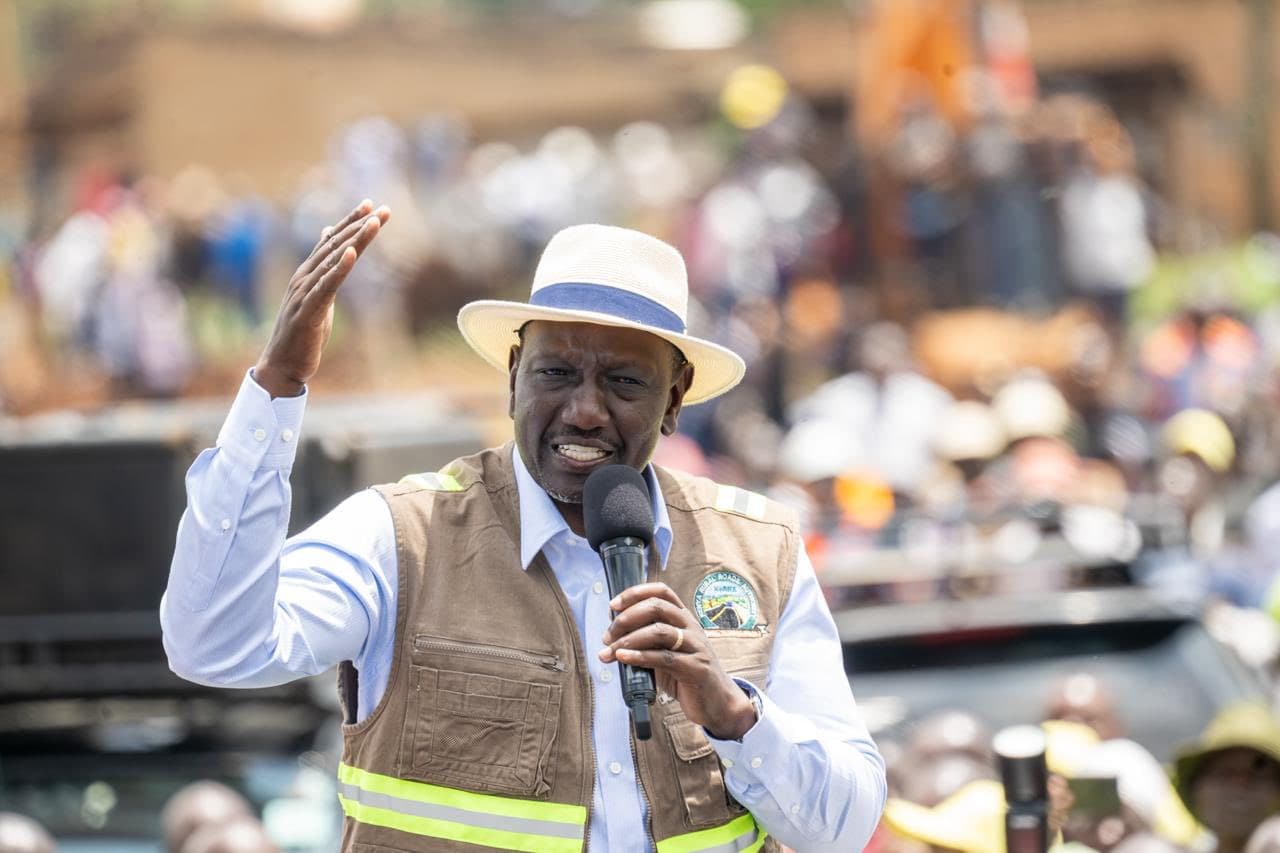We're loading the full news article for you. This includes the article content, images, author information, and related articles.
President’s remarks in Kakamega County are seen as a calculated political move to undermine current opposition leaders while eulogising his long-standing adversary, setting a new tone for the 2027 electoral contest.

KAKAMEGA – President William Ruto on Thursday, October 30, 2025, dismissed the current slate of opposition leaders as lacking vision and substance, declaring that his only formidable competitor has been the late former Prime Minister Raila Odinga. The statement was made during a four-day development tour in Malava, Kakamega County, a region traditionally considered an opposition stronghold. Addressing residents, President Ruto posed a rhetorical question: "When you look at me like this, are those people the only ones I'm competing with?" before asserting, "My only worthy competitor was Raila Odinga. I will finish these ones in the morning."
The President accused the current opposition of having no development agenda for Kenya, claiming their focus is on fomenting chaos and tribalism. "It's because they have no agenda, no plan. They are just fueling tribalism, hate, bringing about chaos and losses," he stated. This line of criticism is consistent with his recent messaging, where he has repeatedly challenged his rivals to present concrete policy alternatives instead of engaging in what he terms "empty rhetoric." During the tour, which included the launch of the 34-kilometre Turbo-Sikhendu Road, Ruto urged leaders to prioritise development over premature 2027 campaign politics.
President Ruto's comments land at a time of significant flux within Kenya's opposition. The Azimio la Umoja One Kenya Coalition, which fronted Mr. Odinga in the 2022 elections, has shown signs of strain. Several constituent parties, including the Wiper Democratic Movement led by Kalonzo Musyoka and Eugene Wamalwa's Democratic Alliance Party of Kenya (DAP-K), have announced intentions to leave the alliance to form a new coalition. Martha Karua's NARC-Kenya had previously signalled its exit, citing "prevailing political developments." This fragmentation lends weight to the President's assertion of a weakened opposition, a sentiment echoed by his political allies who have dismissed the opposition as too divided to mount a serious challenge in 2027.
Political analysts interpret the President's remarks as a multi-pronged strategy. By lauding Raila Odinga, his decades-long rival, he not only pays respect to a formidable political figure but also subtly frames the current opposition leaders, such as Kalonzo Musyoka and Martha Karua, as lesser political operatives. This narrative could be aimed at creating a leadership vacuum in the minds of voters and potentially deepening divisions within the opposition ranks as they scramble to establish a post-Raila identity. Furthermore, the President's focus on his development agenda in opposition zones is a clear effort to win over support and erode their traditional political base. He highlighted his administration's inclusivity by mentioning his working relationships with former Azimio-allied leaders from the Western region, including Wycliffe Oparanya and Eugene Wamalwa, framing it as a move to unite the country beyond tribal politics.
While immediate, specific responses from opposition leaders to the Thursday remarks were not available, their recent statements provide context. Wiper Leader Kalonzo Musyoka has consistently pushed back against claims that the opposition is planless, stating his primary agenda is to ensure President Ruto is a one-term president and that he will defeat him soundly at the polls. Martha Karua has also remained a staunch critic of the administration, recently challenging the President to honour Raila Odinga's legacy through democratic actions and good governance rather than "empty words." The President's strategy appears to be to define the 2027 contest on his own terms, positioning himself against the towering legacy of his past rival rather than the present, fractured opposition. This forces his current competitors to not only counter his government's policies but also to prove they are worthy successors to Mr. Odinga's mantle as the leader of the opposition. The coming months will test their ability to forge a united front and present a coherent alternative vision for the country, a task made more challenging by the President's latest political salvo.
Keep the conversation in one place—threads here stay linked to the story and in the forums.
Sign in to start a discussion
Start a conversation about this story and keep it linked here.
Other hot threads
E-sports and Gaming Community in Kenya
Active 9 months ago
The Role of Technology in Modern Agriculture (AgriTech)
Active 9 months ago
Popular Recreational Activities Across Counties
Active 9 months ago
Investing in Youth Sports Development Programs
Active 9 months ago
Key figures and persons of interest featured in this article